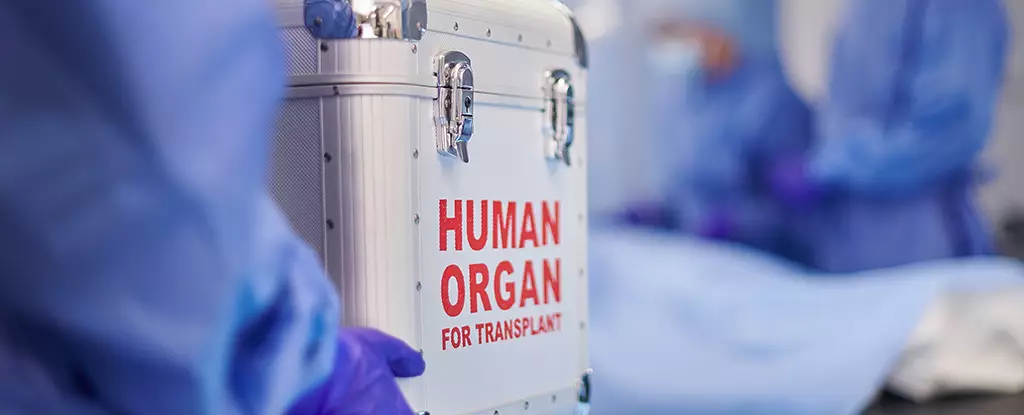The story of Anthony Thomas ‘TJ’ Hoover II, a man who unexpectedly regained consciousness on the brink of organ donation, has sent shockwaves throughout the medical community and raised urgent questions about the protocols that govern the qualification of death in the context of organ donation. This disturbing case, highlighted by whistleblower Nyckoletta Martin during a recent congressional hearing, serves as a case study in the fragility of patient autonomy and the complexities surrounding organ procurement.
In October 2021, Hoover was rushed to Baptist Health Hospital in Richmond, Kentucky, following a drug overdose. Declared brain dead due to cardiac arrest, preparations for organ donation were initiated per his prior wishes. Yet, family members, particularly his sister Donna Rhorer, witnessed alarming signs of life just prior to the surgical procedure. Contrary to the reassurances given by medical staff about common reflexive movements, Rhorer observed her brother displaying pronounced and distressing signs of consciousness, including visible crying. The events that unfolded in the operating room led to a series of chaotic reactions among the surgical team, prompting a halt to the organ donation process.
This incident underscores a critical flaw in the processes that determine death and eligibility for organ donation. As outlined by Martin, the criteria that assess brain death and the likelihood of organ viability may not be stringent enough, leading to rare but tragic occurrences in which patients regain consciousness unexpectedly. The balance of certainty and prompt decision-making in these high-stakes situations is a complex challenge facing healthcare providers. Striking this balance is imperative; overly rigid criteria could unjustly keep patients alive in circumstances where recovery is nearly impossible, thereby consuming valuable resources. Conversely, lax standards risk putting living individuals in perilous situations, deeply affecting both families and medical professionals.
The emotional turmoil experienced by both family members and medical staff during the Hoover case reveals the human element of a fundamentally clinical process. The hospital staff—gripped by shock and fear—made the decision to cease the organ recovery procedure. This reflective turning point begs the question: what safeguards are in place to assure that such decisions are made uniformly and with absolute clarity?
The implications of this incident extend far beyond the life of one man. It raises broader concerns about systemic flaws in the US organ donation system, where transparency and accuracy can mean the difference between life and death. While over 46,000 successful organ transplants were recorded last year, countless individuals are left awaiting potentially life-saving procedures, raising ethical questions about the fairness and efficacy of the current protocols.
Furthermore, the case has sparked ongoing scrutiny from federal authorities like the Health Resources and Services Administration (HRSA), emphasizing the need for immediate reforms to ensure protocols are robust, transparent, and humane. A critical part of this dialogue revolves around how to instill public confidence in the organ donation process.
Systemic Reforms on the Horizon
Following the Hoover incident, the urgency for reform has never been more apparent. Legislative and healthcare leaders are now faced with the immediate task of revising and strengthening the criteria that govern organ donation and death qualification. The overarching goal must be to bolster the ethical framework of organ transplantation while ensuring that such instances remain exceedingly rare.
As healthcare providers and policymakers navigate these uncharted waters, they must also integrate the emotional and psychological dimensions of both patients and families into the decision-making process. Listening to the lived experiences of families like the Hoovers can provide invaluable insights that directly influence future reforms.
The case of TJ Hoover serves as a poignant reminder of the vulnerabilities inherent in the organ donation system. Not only does it challenge the technical and ethical aspects of determining death, but it also thrusts human experiences and emotions into sharp focus. As the healthcare system grapples with these questions, the hope is that such occurrences inform better practices that honor both the sanctity of life and the need for effective, compassionate healthcare solutions. Continuous scrutiny, accountability, and reform may yet deliver a system that is not only effective but also just and humane—ensuring that no one else will have to endure such a harrowing experience in the future.

